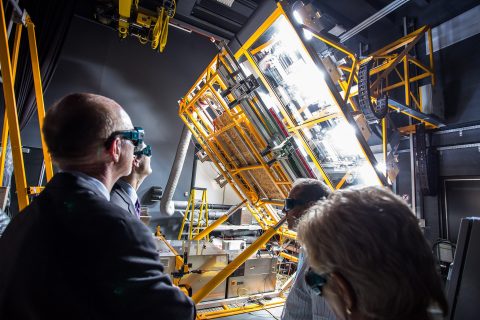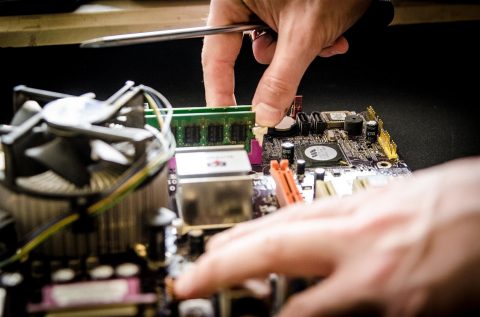Science and Technology (Cert)
Program highlights
- Build your confidence and academic experience before applying to an engineering degree program
Program structure
Program option
- Certificate in Science and Technology (30 credits)
The certificate requires the successful completion of 30 credits. The grade in each course must be C- or better for the course to count towards the certificate. A GPA of 2.00 must be maintained to remain in the certificate program.
Courses
Students may wish to consult an academic advisor at Student Academic Services prior to choosing courses.
United States students: A U.S. Federal Student Aid-eligible version of this program is offered. This version meets all U.S. regulations (such as no co-operative education or e-courses) for eligible programs.
Admission criteria
Minimum cut-off averages and course requirements for admission
- Quebec CEGEP: 21 overall
- High School: C+ overall
- ACT or SAT is NOT required
- Canadian curricula course requirements
- Accepted international qualifications
- International Baccalaureate (IB) diploma: 26 overall
- International Baccalaureate Career-related Programme (CP): 4.3/7 overall
- Baccalauréat français: 11 overall
- British system of education (GCE):
- A-levels: At least two A-level exams CD or
- AS-levels: At least 4 AS-level exams with equivalent results or
- BTEC: Level 3 Diploma or Extended Diploma with equivalent results
- Students should include all their exam results from iGCSE (or equivalent) onwards to support their application.
- Additional information for British System of Education (GCE) applicants
- University Transfers (internal): 2.3 overall
- University Transfers (external): C+ overall
Additional requirements for admission
Independent Students wishing to enter the Certificate program must be in good standing.
Students may transfer up to 12 credits into the Certificate program. The credits that may be so transferred are determined by the University at the point of entry into the program.
Programs for individual students can be designed in consultation with an academic advisor at Student Academic Services.
Minimum cut-off averages should be used as indicators. The cut-off data may change depending on the applicant pool. Applicants who meet the stated minimum requirements are not guaranteed admission to these programs.
Application deadlines

FALL ENTRY (September)
Deadline: March 1
U.S. and international applicants: Apply no later than February 1 to allow time for immigration document processing. However, applying earlier is strongly recommended. Immigration processing times vary by country and delays could prevent you from starting your studies on time.

WINTER ENTRY (January)
Deadline: November 1
U.S. and international applicants: Apply no later than August 1 to allow time for immigration document processing. However, applying earlier is strongly recommended. Immigration processing times vary by country and delays could prevent you from starting your studies on time.
We reserve the right to close admission to a program at any time after the official deadline without prior notice.
After your degree
Thanks to Concordia's emphasis on taking an interdisciplinary approach to your field of study, you'll graduate with a depth of knowledge informed by an understanding of how your subject connects to the wider world. You'll be ideally positioned to succeed in a professional role that demands rigorous analytical thinking, sharp communication skills and the ability to approach problem-solving from multiple dimensions.
Student story

Doris Oh
Bachelor of Engineering Option: Civil Infrastructure (Co-op)
There are plenty of opportunities to follow your curiosity in the Gina Cody School of Engineering and Computer Science, where Doris Oh dives into her first internship through Co-op.
Other programs of interest

Protect water resources. Design buildings, bridges and tunnels. Improve transportation and traffic flow. As a civil engineer, your expertise in urban and environmental planning lets you guide municipalities to create the structures and systems that have a positive impact on everyday community life.
Department
Department of Building, Civil and Environmental Engineering
Faculty

Control energy with a flip of a switch. Design next-generation microchips or flight control systems. As electrical engineers you rein in electrons, guide them through the devices we depend on every day — whether they are very small (like the microchips in our cell phones) or very large (like the power grids or charging stations for electric cars).
Department
Department of Electrical and Computer Engineering
Faculty

Without computer hardware there would be no smart phones, DVD players and digital recorders or computerized medical devices. As a computer engineer, your knowledge of computer architecture, digital electronics, circuits and digital communication will lead to new innovations or bring about another information revolution.
Department
Department of Electrical and Computer Engineering
Faculty

